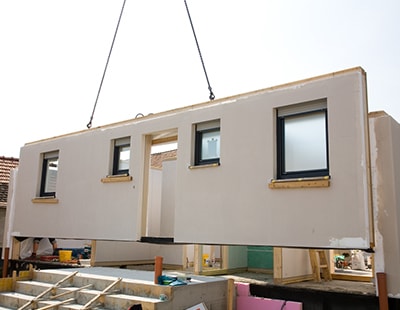A major new housebuilder survey has found that concerns are growing over the short-term outlook for the UK economy.
Knight Frank interviewed 47 national and SME housebuilders who combined build around 20,000 homes per year.
Just over 40 per cent of respondents said that the short-term outlook for the UK economy had been the most challenging factor for their business in Q2, up from 20 per cent who cited this factor in Q1. Likewise, 44 per cent selected ‘mortgage availability and cost for purchasers’ as the most challenging factor, up from just 15 per cent in the first quarter.
The outlook for the economy has also impacted how land deals are structured.
Over 40 per cent of housebuilders said they had either been involved in a conditional land purchase in the second quarter, another 40 per cent had agreed a purchase with a deferred payment structure, while a quarter said they had renegotiated a purchase and a fifth said they had either withdrawn or deferred a purchase.
Justin Gaze, head of residential land at Knight Frank, says: “We have seen more muted interest in land this quarter on the back of a weaker housing market and the challenging economic backdrop. Uncertainty over sales values and the rates of sale, particularly given high funding and development costs means the market is having to adjust accordingly. This greater caution has led to a preference for deferred payment structures, renegotiations and developers deferring purchases.”
Looking ahead, over half also thought that ‘mortgage availability and cost for purchasers’ would have the greatest impact on the housebuilding sector in the third quarter, second to planning delays.
Of those surveyed, 60 per cent said they expected start volumes to fall over the next three months and over half said they thought land prices would fall over this period.
Land values
The UK’s worsening economic outlook weighed on the residential development land market in the second quarter, leading to a slowdown in activity and a decline in prices across the board.
Average greenfield land prices fell 6.1 per cent in Q2, taking the annual drop to 14.6 per cent - the biggest quarterly and annual decline on record.
Brownfield values fell 5.9 per cent on quarter and 17.9 per cent annually – the steepest quarterly drop since the mini-Budget impacted Q4 2022 and the largest annual decline on record.
In Prime Central London, average prices fell 5% on quarter and annually – the first quarterly decline on record since Q2 2020 and first annual fall since Q1 2021.
Gaze comments: “While land price falls are significant, residential land values tend to be volatile and highly sensitive to house price changes. As the economic situation improves and inflation eases, we could see a sharp rebound in land values.”
Planning slowdown
Planning delays are a recurrent issue, with half of housebuilders allowing over a year to secure reserved matters approval on an allocated site, Knight Frank said.
Typically, this approval process should take eight weeks or three months for large developments, however Knight Frank’s survey shows that 18 per cent of respondents allow up to two years, with just 13 per cent building in up to six months of approval time.
England had the slowest start to the year in Q1 2023 since 2009 in terms of major residential planning decisions granted, government data shows. Decisions granted fell 16 per cent compared to Q1 2022 to 1,037.
Knight Frank’s survey suggests that build costs are still rising, but at a slower rate than the surges seen in recent years. Just over half said that prices for key building materials had increased in Q2 compared with Q1, while just under 40 per cent said that labour costs had risen.





.jpg)


.png)



.jpg)





Join the conversation
Be the first to comment (please use the comment box below)
Please login to comment